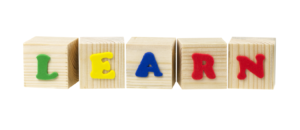Play
 Play is a healthy and essential part of childhood. It is the child´s way of connecting with and learning about the world. It is the way children experiment and learn to communicate.
Play is a healthy and essential part of childhood. It is the child´s way of connecting with and learning about the world. It is the way children experiment and learn to communicate.
It is the doing rather than watching that activates and involves all of the child’s senses: touching, feeling, hearing, seeing, and sometimes smelling. It provides an opportunity to stimulate development and contributes to the cognitive, physical, social, and emotional well-being of children.
Play is also important because it involves you. It’s an ideal opportunity for you to engage fully with your child. Choices and possibilities are offered along with different ways to explore the world and problem solve. Play is an activity that your child has fun doing, is simple, spontaneous, flexible and has no specific goals. It is started and then led by your child.
The main requirement for play is imagination. Parents can support children’s play by providing appropriate play materials, structuring their environment to encourage play, and introducing new types of play to their children when developmentally appropriate.
The First Year
Welcome to parenting! Enjoy this time with your baby! During the first year, your baby is learning:
- about the sounds of words and the rhythm of language as you talk to them – speak to them often and repeat words over and over;
- hand/eye coordination as you hold out a toy for them to reach;
- about language and conversation as you respond to their cues; and
- to enjoy simple picture books you read them.
The Toddler Years
Everyday moments are rich bonding and learning opportunities! During the toddler year, your child is learning:
- about music and movement as you play music and sing songs and dance together;
- pre-mathematical skills when you count together – as you walk up and down the stairs or as you count their little fingers and toes; and
- about measuring, pouring and mixing ingredients as you cook and bake together.
Toddlers engage in pretend play when they imitate actions and events they have experienced in their family life.
Preschoolers
It’s child’s play! Your child is developing:
- imagination when you give them dress-up clothes and household items to play make believe with;
- attention skills and memory when you play ‘I Spy’ together;
- balance and coordination and overall muscle strength when you play active games together that involve running, jumping and hopping;
- pre-reading skills when you point out familiar signs and shapes such as STOP signs; and
- pre-mathematical skills by learning numbers when you sing counting songs together.
According to Dr. Fraser Mustard, Canadian pioneer of early childhood education, play expands intelligence, stimulates the imagination, encourages creative problem solving, and helps develop confidence, self-esteem, and a positive attitude toward learning.
Services related to this information:
- Contact your Public Health Nurse
- 811 HealthLine (Newfoundland & Labrador) – Call 811 or 1-888-709-2929 / TTY 1-888-709-3555
